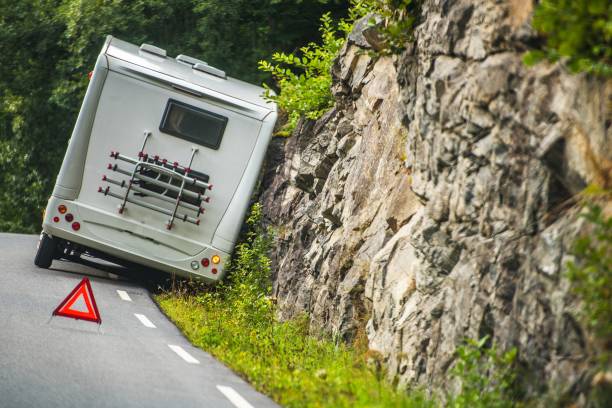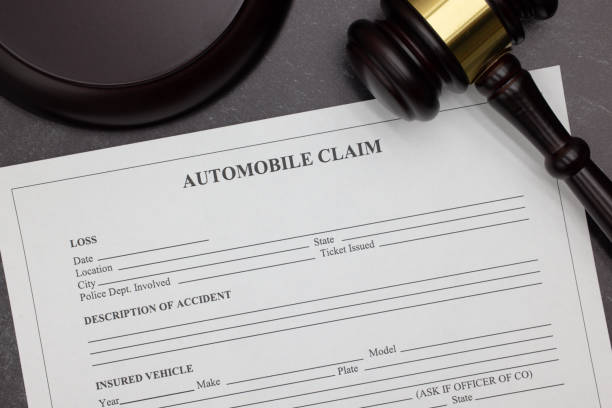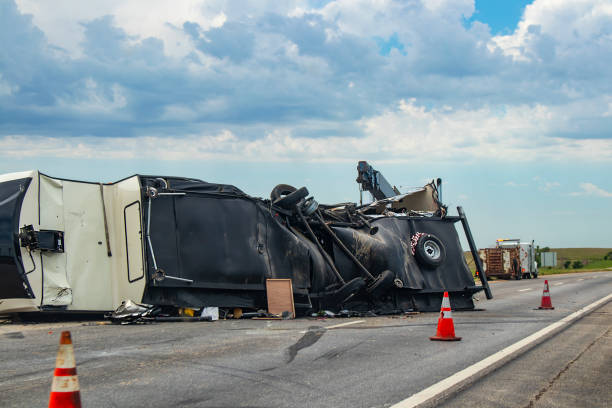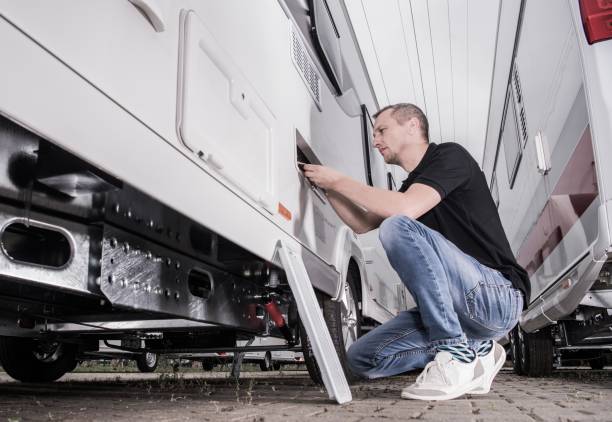Introduction
RVs, or recreational vehicles, have become a quintessential part of the American lifestyle. These homes on wheels offer the freedom to explore the great outdoors without sacrificing the comforts of home. However, along with the joys of RV living comes the responsibility of ensuring adequate protection for your investment. RV insurance is essential for safeguarding your vehicle, belongings, and financial security while on the road. In this comprehensive guide, we’ll explore everything you need to know about RV insurance, from the types of coverage available to tips for finding the right policy.

What is RV Insurance?
RV insurance is a specialized type of coverage designed to protect recreational vehicles from a variety of risks, including accidents, theft, vandalism, and liability claims. Similar to auto insurance, RV insurance provides financial assistance in the event of damage to your vehicle or property, as well as medical expenses for injuries sustained in accidents.
Types and Categories
Class A Motorhomes
Class A motorhomes are the largest and most luxurious type of RVs, resembling commercial buses in size and amenities. These vehicles typically require comprehensive insurance coverage due to their high value and extensive features.
Class B Campervans
Class B campervans, also known as camper vans or conversion vans, are compact yet versatile RVs built on standard van chassis. Insurance for Class B motorhomes may be less expensive than Class A due to their smaller size and lower replacement cost.
Class C Motorhomes
Class C motorhomes are characterized by their distinctive cab-over design, with sleeping quarters located above the driver’s compartment. Insurance for Class C RVs typically falls somewhere between Class A and Class B in terms of cost and coverage.
Travel Trailers
Travel trailers are towable RVs that range from basic tent trailers to spacious fifth-wheel models. Insurance for travel trailers may vary depending on factors such as size, age, and amenities.
Fifth-Wheel Trailers
Fifth-wheel trailers are a type of travel trailer that hitches onto a pickup truck using a specialized fifth-wheel coupling. Insurance for fifth-wheel trailers may include additional coverage for the towing vehicle.
Symptoms and Signs
Damage from Accidents
Accidents can occur on the road or while your RV is parked, leading to damage to the vehicle’s exterior, interior, or mechanical components.
Theft and Vandalism
RVs are vulnerable to theft and vandalism, especially when left unattended in remote or poorly lit areas. Stolen belongings and vandalism damage can be costly to repair or replace without insurance coverage.
Natural Disasters
Natural disasters such as storms, floods, wildfires, and earthquakes can cause extensive damage to RVs and their contents. Insurance policies may offer coverage for weather-related incidents depending on your location and chosen coverage options.
Causes and Risk Factors
Age and Condition of the RV
Older RVs may be more prone to mechanical breakdowns and structural issues, increasing the risk of accidents and insurance claims.
Driving Experience
Inexperienced RV drivers may be at higher risk of accidents, particularly when navigating unfamiliar roads or handling larger vehicles.
Storage Location
The location where you store your RV when not in use can impact its risk of theft, vandalism, and weather-related damage. Secure storage facilities with surveillance and gated access may result in lower insurance premiums.
Usage Patterns
How often you use your RV and the types of activities you engage in can affect your insurance rates. Full-time RVers may require different coverage than occasional vacationers.

Diagnosis and Tests
Insurance Quotes
Obtaining quotes from multiple insurance providers is essential for comparing coverage options and pricing. Be sure to provide accurate information about your RV and driving history to receive the most accurate quotes.
Policy Reviews
Reviewing the details of each insurance policy carefully can help you understand what is covered, what is excluded, and any limitations or restrictions that may apply.
Consultation with an Agent
Speaking with an insurance agent or broker who specializes in RV insurance can provide valuable insights and assistance in selecting the right coverage for your needs.
Treatment Options
Liability Coverage
Liability coverage is mandatory in most states and helps pay for injuries and property damage caused by accidents for which you are at fault.
Collision Coverage
Collision coverage helps pay for repairs to your RV if it is damaged in a collision with another vehicle or object.
Comprehensive Coverage
Comprehensive coverage provides protection against non-collision events such as theft, vandalism, fire, and natural disasters.
Personal Property Coverage
Personal property coverage reimburses you for belongings stolen from or damaged inside your RV, such as electronics, appliances, and clothing.
Emergency Expense Coverage
Emergency expense coverage helps cover the cost of temporary lodging, transportation, and meals if your RV is rendered uninhabitable due to a covered loss.
Preventive Measures
Safe Driving Practices
Practicing defensive driving techniques and obeying traffic laws can help reduce your risk of accidents and insurance claims.
Security Measures
Installing security devices such as alarms, immobilizers, and GPS tracking systems can deter theft and vandalism and may qualify you for insurance discounts.
Routine Maintenance
Regular maintenance checks and servicing can help keep your RV in optimal condition and reduce the likelihood of mechanical failures and breakdowns.
Weather Preparedness
Staying informed about weather forecasts and taking precautions to protect your RV during storms and extreme weather events can minimize damage and insurance claims.
Personal Stories or Case Studies
The Smith Family’s Cross-Country Adventure
The Smith family embarked on a year-long journey across the United States in their Class A motorhome. Along the way, they encountered various challenges, including a minor fender bender in a crowded parking lot and a broken window due to a hailstorm. Fortunately, their comprehensive RV insurance policy provided coverage for both incidents, allowing them to continue their travels with peace of mind.

Expert Insights
Interview with RV Insurance Specialist, John Doe
According to John Doe, an experienced RV insurance specialist, “RV owners should carefully assess their insurance needs based on factors such as the value of their vehicle, their travel habits, and their desired level of coverage. Working with an independent agent who understands the unique risks and complexities of RV ownership can help ensure you have the right protection in place.”
Conclusion
In conclusion, RV insurance is a vital investment for protecting your home on wheels and ensuring peace of mind while exploring the open road. By understanding the types of coverage available, evaluating your risk factors, and taking preventive measures, you can enjoy the freedom and adventure of RV living with confidence.



